School of Journalism and Communication of Renmin University of China Holds Review Meeting on Innovative Research Teams for Independent Knowledge System of Journalism and Communication
In order to carry out the spirit of the important remarks of general secretary Xi Jinping during his visit to Renmin University of China and to promote the construction of China's independent knowledge system, the School of Journalism and Communication of Renmin University of China held a review meeting on the innovative research team of the independent knowledge system of journalism and communication on May 13, when the second round of "double world-classproject" construction was fully launched.

Zhou Yong, executive dean of the School of Journalism and Communication of Renmin University of China, presided over the review meeting. He said that the discipline of journalism and communication is one of the disciplines that play an important role in supporting philosophy and social science. And as the leader of the construction of the"double first-class" in journalism and communication, the School of Journalism and Communication is responsible and able to take the lead in carrying out the innovation of independent knowledge system,to help accelerate the construction of philosophy and social science with Chinese characteristics. Zhou Yong introduced that the school has already sorted out the development direction of journalism and communication and planned three major academic directions, and nine sub-discipline areas of it. Zhou hoped that the school's research teams can focus on seeking disciplinary innovation within and outside the framework, and the school will support each team with different resources according to the review.
A total of 16 innovative research teams formed by faculty members in the School of Journalism and Communication participated in this review meeting. The chief experts of each team made presentations on the team's project application plan in turn, and a panel of external experts evaluated each team one by one.
Professor Tang Xujun, distinguished professorof journalism and communication, University of Chinese Academy of Social Sciences; Professor Sui Yan, dean of School of Journalism and Communication, Communication University of China; Professor Shan Bo, director of Media Development Research Centre, Wuhan University; Professor Li Benqian, dean of School of Media and Communication, Shanghai Jiaotong University; Professor Chen Changfeng, executive vice dean of School of Journalism and Communication, Tsinghua University; Professor Chen Gang, dean of School of Journalism and Communication, Peking University; Professor Wei Lu, dean of School of Media and International Culture, Zhejiang University; Professor Zhou Baohua, vice dean of School of Journalism and Communication, Fudan University;Professor Chao Naipeng, dean of School of Communication, Shenzhen University, served as the panel judges.
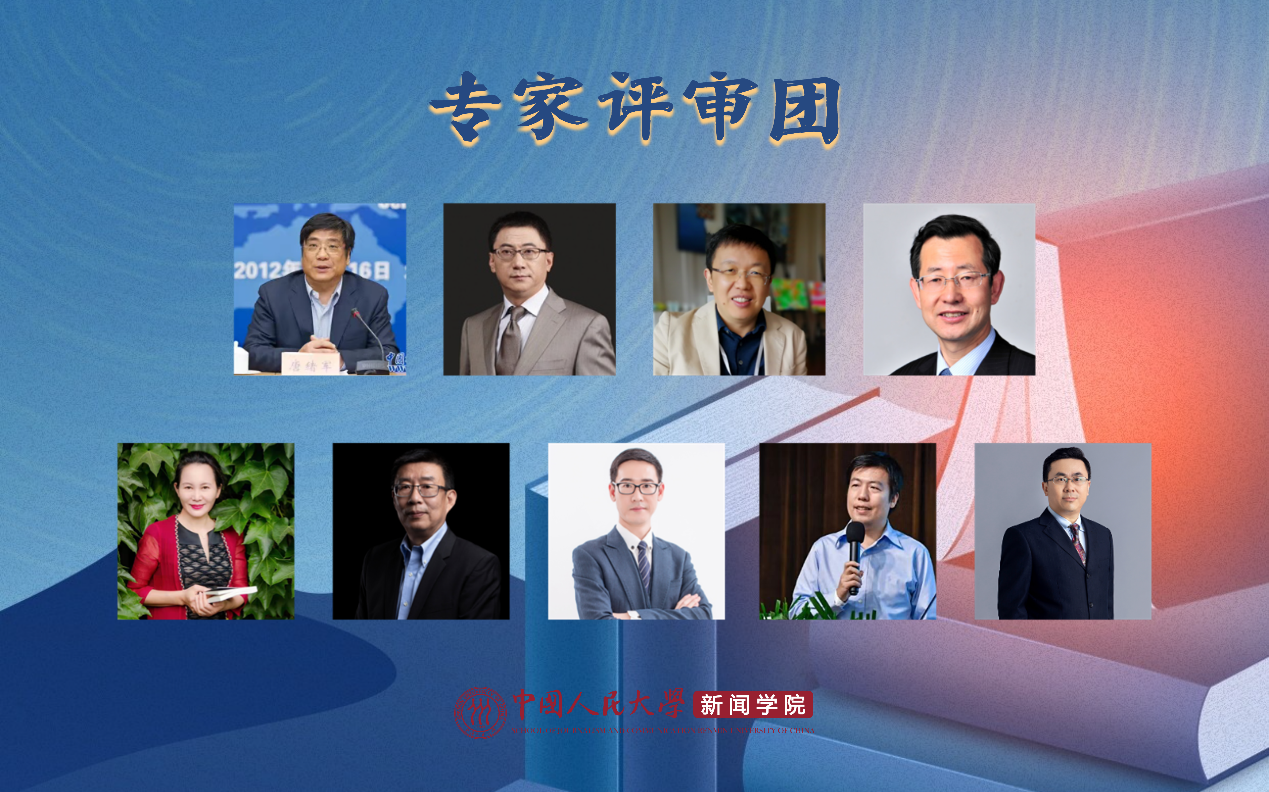
The "Intelligent Communication Research Team" consists of Peng Lan, TaNa, Zhou Yushu, and Zhang Yiyan, with Peng Lan as the chief expert. The team plans to work on three sub-topics: "Research on trends, laws, and impacts of intelligent media applications", "Research on algorithms in the era of artificial intelligence", and "Research on human-human-computer relations in intelligent environments". The team will try to sort out the basic structure and knowledge system of intelligent communication through an interdisciplinary perspective, and on this basis, explore the focal issues of intelligent communication in depth. Peng Lan highlighted the practical difficulties faced by the project, such as the lack of theoretical foundation, the interdisciplinary cooperation involved in the research problems, and the high requirements for experimental conditions and equipment, and gave a brief presentation of the expected results.
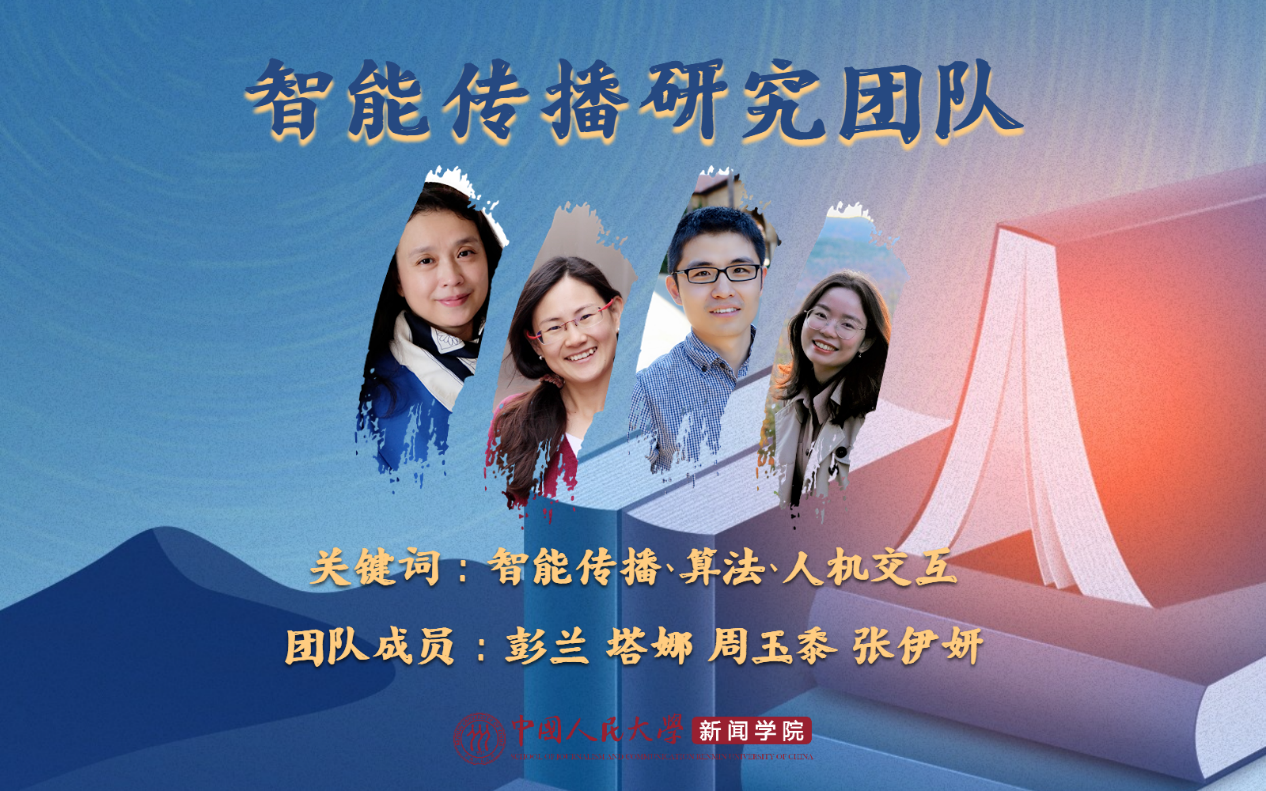
Professor Li Benqianrecognized the research direction and value of Peng Lan's team. He believed that the members of Peng Lan's team, with their interdisciplinary backgrounds in literature and science, had accumulated profound experience. He also said their research combined the overall trend and demand of "content + technology" in the media industry, which was of practical significance. Professor Li Benqian suggested the logical order of the sub-topics.
Professor Zhou Baohuaappreciated the research direction of Peng Lan's team, saying that intelligent communication is an innovative direction full of academic potential and challenges. He then made suggestions and expectations on the theoretical positioning and imagination of Peng Lan's team's research topics.
The "Diverse Subjects to Build Affinity of China's Image Research Team" is composed of Zhong Xin, Zhao Yonghua, Lin Shengdong, Zhang Di, Chen Ting, Jiang Xiancheng, JinShengjun, and Wang Yamo, with Zhong Xin as the chief expert. Zhong Xin said that in the international context, China's "affinity" is gradually gaining attention and becoming a widely talked about topic. Based on general secretary Xi Jinping's "5.31" speech, the project aims to accelerate the construction of the five forces of international communication and promote world peace and common development. The project plans to adopt theoretical, quantitative, and qualitative research methods, take cross-cultural empathy as the research path, and explore the important role that different subjects can play in enhancing the affinity of China's image from the perspective of multiple subjects.

Professor Zhou Baohua expressed his approval of Zhong Xin's team's research topic, affirmed the research path of using cultural empathy as a theoretical base, suggested deepening the consideration between "rational" emotions and value positions, interests, and perceptions, and expressed his expectation for the team's research output.
The "Media Economics Research Innovation Team" consists of Zhang Huifeng, Zhou Weihua, Han Xiaoning, and Zhao Shuguang, with Zhang Huifeng as the chief expert. The team's research focuses on the regulation of the media industry, especially the regulation of platforms. The project plans to use Western economics as a way forward to study the market structure of relevant platforms, as well as the market position and behaviour of relevant market players. The core of the project is to study the relationship between the government, platforms, and consumers to explore the uniqueness of the market structure of media platforms through an inventory of the theoretical system of media economics, and design a national regulatory path accordingly, according to Zhang Huifeng.

Professor Tang Xujun affirmed the innovative research of Zhang Huifeng's team, saying that the research topic had captured the frontiers of the discipline of journalism and communication, and had clarified the current structure of China's media platforms from the perspective of "regulation" on the basis of industrial economics. Professor Tang Xujun suggested that Zhang Huifeng's team should further deepen their thinking on digital labour.
Professor Chao Naipeng affirmed the value of the team's research, saying that the innovation of media economics in the study of media platforms is of unique significance to the development of the contemporary Chinese media industry.
"The Academic Innovation Team on Communication Foundation Theory and Discourse"is composed of Liu Hailong, Chen Yang, Wang Bin, Wang Yigao, Liu Dong, Pan Wenjing, Dong Chenyu, and Lelia Samson, with Liu Hailong as the chief expert. Liu Hailong pointed out that in the new media environment, many basic communication theories seem to have become somewhat ineffective, and there is an urgent need to achieve innovative breakthroughs in basic communication theories by adhering to the problem-oriented approach, promoting "localization of communication" research, looking at theoretical innovation under the change of communication media and media environment, and insisting on ideas such as the combination of theory and empirical evidence to achieve innovative breakthroughs in the basic theory of communication and to form a vibrant Chinese communication theory. Liu Hailong shared the team's planned research directions and issues, such as the basic theory of new media communication, Chinese communication concepts and discourse, and new media and communication psychology.

Professor Tang Xujun discussed the issues of fundamental theory innovation and team resource allocation of Liu Hailong's team and suggested further refinement of the project's internal design.
Professor Chao Naipeng agreed with the significance and value of the research design of Liu Hailong's team. He argued that as mankind enters the digital society, the fundamental theories of communication are facing changes and there is an urgent need to carry out fundamental theoretical innovation and the construction of Chinese academic discourse. He suggested that Liu Hailong's team should draw theoretical nutrients from other disciplines such as political science and sociology.
"The Research Team on Grassroots Public Communication in Rural Revitalization" consists of Yan Yan, Tang Zheng, Pan Wenjing and Dong Chenyu, among wich Yan Yan is the chief expert. Yan Yan said, in the context of China's completevictory in the fightagainst poverty, the project is born out of the interviews and field observations conducted in poor counties in the early stages of the "832" project, and has a relatively solid and rich research foundation. The research project consists of three parts: "Digital Empowerment and Human Modernisation", "Communication Practices in the Reconstruction of Rural Communities" and "Organisational Communication in Rural Governance". The project will cover a wide range of topics, including the digital literacy and digital practices of villagers, and the adaptation of old and new family communication models in rural societies. The team also hopes to achieve the goals of political advice, theory building and talent training through this project.

Professor Wei Lu pointed out three major highlights in Yan Yan team’s research project: aligning with major national strategies; filling the gap of communication theory in rural context; presenting new questions and phenomena in China’s communication practice. He suggested that the team should think more about the logical relationship between the theoretical focus and research framework in the project.
Professor Chen Changfeng thought highly of their research objectives and research value. She believed that the project was of great practical significance, connecting national strategies and disciplinary development. She hoped that Yan Yan team could return to theoretical exploration from empirical research, showing a higher level of academic thinking.
“The Research Team onHealth Communication of Big Data and Integrated Paradigm”consists of Zhao Xiaoman, Huang He and Zhang Di, where Zhao serves as chief expert. Zhao Xiaoman said, the use of Internet facilitated the shift from professional knowledge to public knowledge in health related communication issues. Therefore,based on communication science as well as research paradigm in computer science and driven by research questions in health communication, the team intended to combine traditional empirical research methodologies with big data technology in order to find a comprehensive paradigm that could be applied to health communication research in new media context. The project focuses on the information dissemination pathway, interaction patterns between subjects, healthy behavior effects, the mediating influence of the media and so on. Zhao Xiaoman further argued the feasibility of this project in terms of technical pathway and data acquisition.
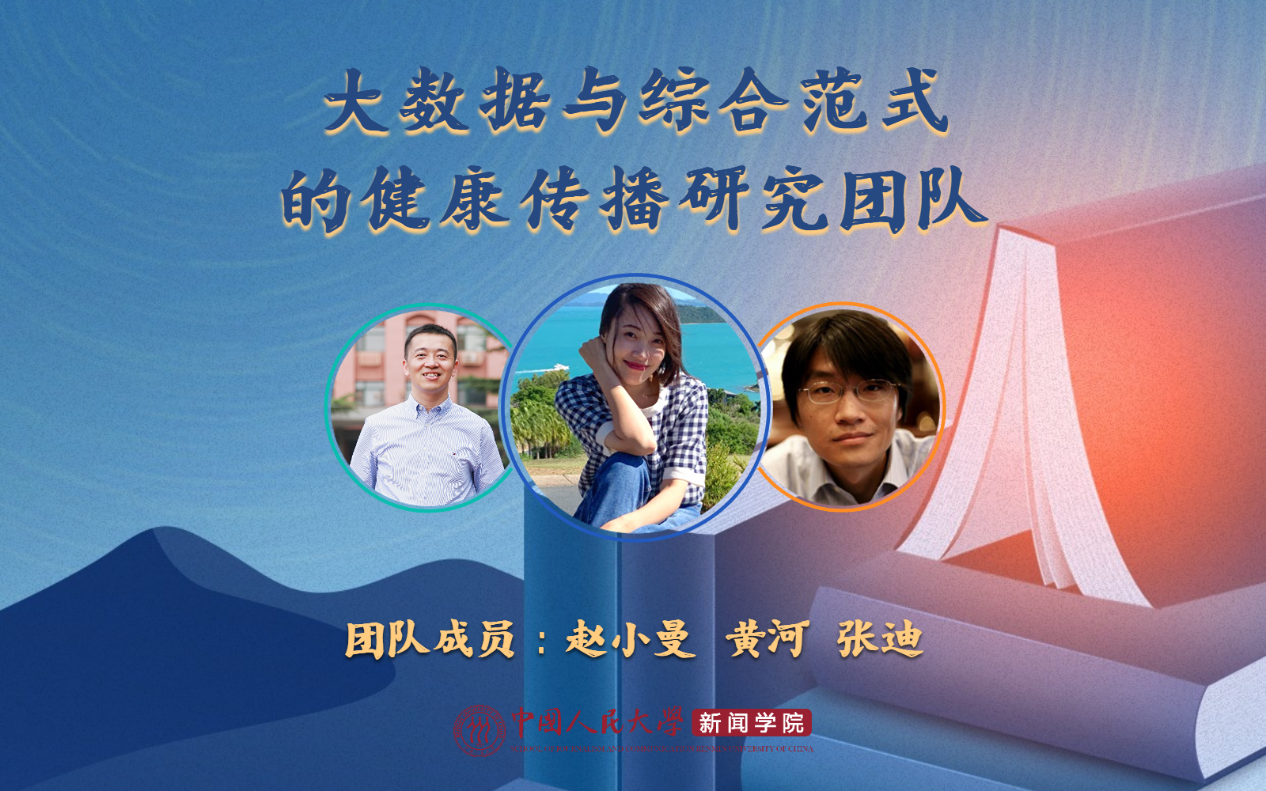
Professor Wei Lu approved that the theoretical and methodological innovation of Zhao Xiaoman team are of high potential, and praised their research methods which involved comprehensive paradigms of communication science and computer science. He recommended the team to further clarify the boundaries between research focuses, and to take behavior, perception, emotion, recognition and other factors into consideration.
Professor Chen Changfeng recognized the significance of Zhao Xiaoman team’s project, and appreciated their research content as well as research methods, suggesting their further exploration in empirical research, application and theory.
“The Research Team on Internet Era Journalism Knowledge System Construction”consists of Wang Bin, Xu Xiangdong, Li Biao and Fang Jie, where Wang Bin serves as the chief expert. Wang Bin said that, with the changes in social environment and in news practice, journalism knowledge system needs prompt arrangement and update. The construction of three major systems would be groundless without basic concepts, categories, and logical relationships. Consequently, the team hoped to sort out the basic concepts, principles, and methodologies in a comprehensive and systematic way, enriching and improving the ontology, epistemology, and methodology of journalism, constructing a more systematic and comprehensive knowledge map, and building an Internet era teaching system upon it. Wang Bin briefly explained the expected outcomes and possible problems.
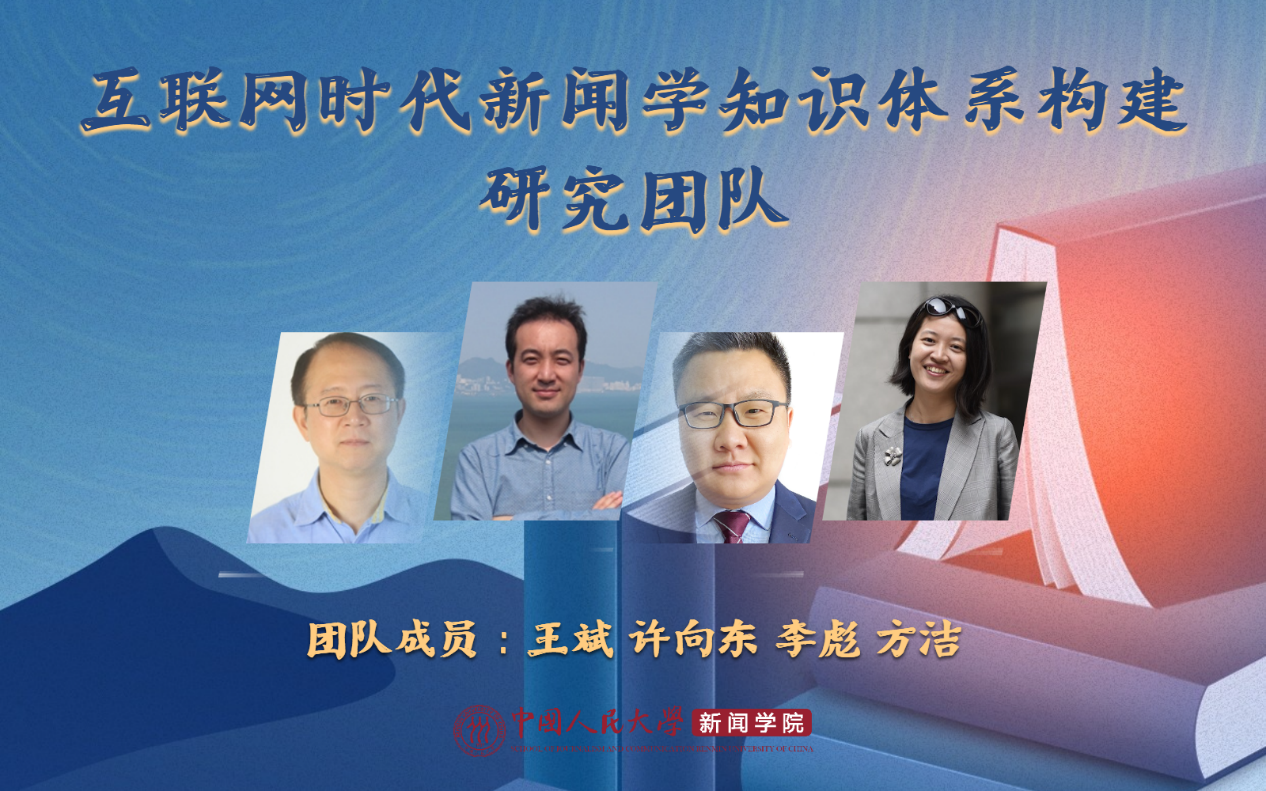
Professor Wei Lu deemed the journalism knowledge system construction the basic work and important direction in the coming years. He approved Wang Bin team’s research design, suggesting the team set its root in practice and refine new concepts or proposals from it.
Professor Sui Yan believed that in the background where the subject of journalism and communication was taking the brunt of internet era, the project of Wang Bin team was far-reaching and ambitious. He also mentioned that the definition of “Internet Journalism”and its relationship with “journalism” should be further clarified.
“The Innovation Research Team on Online Public Opinion Regulation”consists of Zhao Shuguang, Zhou Yong, Li Biao, Huang He and Zhou Yushu, where Zhao serves as the chief expert. Zhao said, the regulation of online public opinion had become an important topic of concern in all fields. Thus, this project started from 12 main research directions including literature review of online public opinion regulation, comparative study of the regulation in developed countries, developing stages in China, and current situation and main problems, aimed to revolutionize the regulation system through in-depth cooperation in the team, and through a combination of the research power.

Professor Wei Lu recommended the team to further clarify the core focus in the project design. He expected the project to establish a database applicable to the academic community.
Professor Sui Yan affirmed the value and significance of this project and discussed the feasibility and practicality of public opinion regulation theory.
“The Innovation Team onEmotion Communication” consists of Zhao Yunze, Zhao Shuguang, Yan Mei and Chen Jijing, where Zhao Yunze serves as the chief expert. Zhao said that in the digital media era, emotion expression had actually been detached from human body, surviving independently on social media platforms. The team planed to focus on emotions including panic, anger, jealousy, humor and sympathy from the perspectives of psychology and communication. The team systematically explains the generation and dissemination mechanism in theory, in order to strengthen public media literacy and popular education, promoting the construction of a harmonious society.
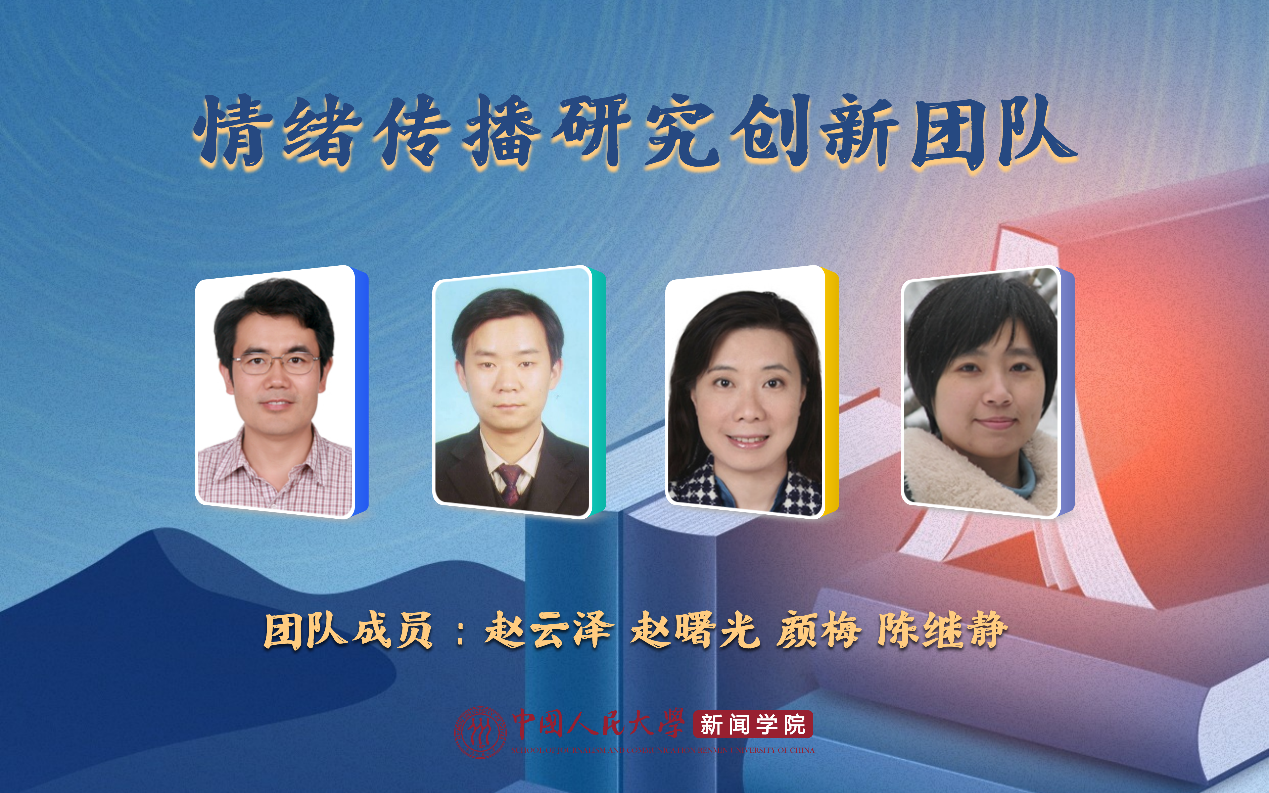
Professor Shan Bo looked forward to the prospect of this project. He believed that the cross-disciplinary research with psychology is innovative. In his suggestion, the innovation of theory and communication mechanism should be explored in the form of inter-university and inter-disciplinary resource integration as well as academic exchange.
Professor Tang Xujun discussed about the research concept of this project, suggesting that the team provide information and advice for the needs of governance, and give full play to the value of scholars’ theoretical analysis.
“The Research Team on New Mainstream Media Content Production and Communication System Construction” consists of Xu Xiangdong, Cai Wen, Zhong Xin, Tang Zheng, Weng Changshou, Xu Ying, Fang Jie, Yang Qiguang, Luo Xuelei, Wang Huiyi and Wu Jie, with Xu Xiangdong as the chief expert. Xu said, this research team was mainly composed of the practitioner team in the department of journalism. Consequently, the research objectives were to not only theoretically explore the construction and revolution of new mainstream media, but also to explore the adjusting and optimizing direction of news-writing courses. Xu explained the research design of sub-topics in detail.

Professor Shan Bo suggested Xu’s team should stick to the main point of research innovation firmly, build a strong database, and carry out the innovation of both theoretical history study and news practice on the basis of the heritage of disciplinary history study.
Professor Tang Xujun suggested that Xu’s team should focus more on the new technology application and means of media integration, in order to promote the development of journalism and communication in practice.
“The Research Team of Chinese Aging Population and Smart Media Use in the Perspective of Digital Divide” consists of Pan Shuya, Liu Dong, Zhang Jinxi and Soyoung Jung, with Pan Shuya as the chief expert. Pan said, this project mainly focused on the problem of aging population’s media access and the digital divide in media use. The team expected to contribute to bridging digital inequalities by going closer with the elderly, and drawing a panoramic portrait of how Chinese elderlypopulation were using smart media with solid data and researches.
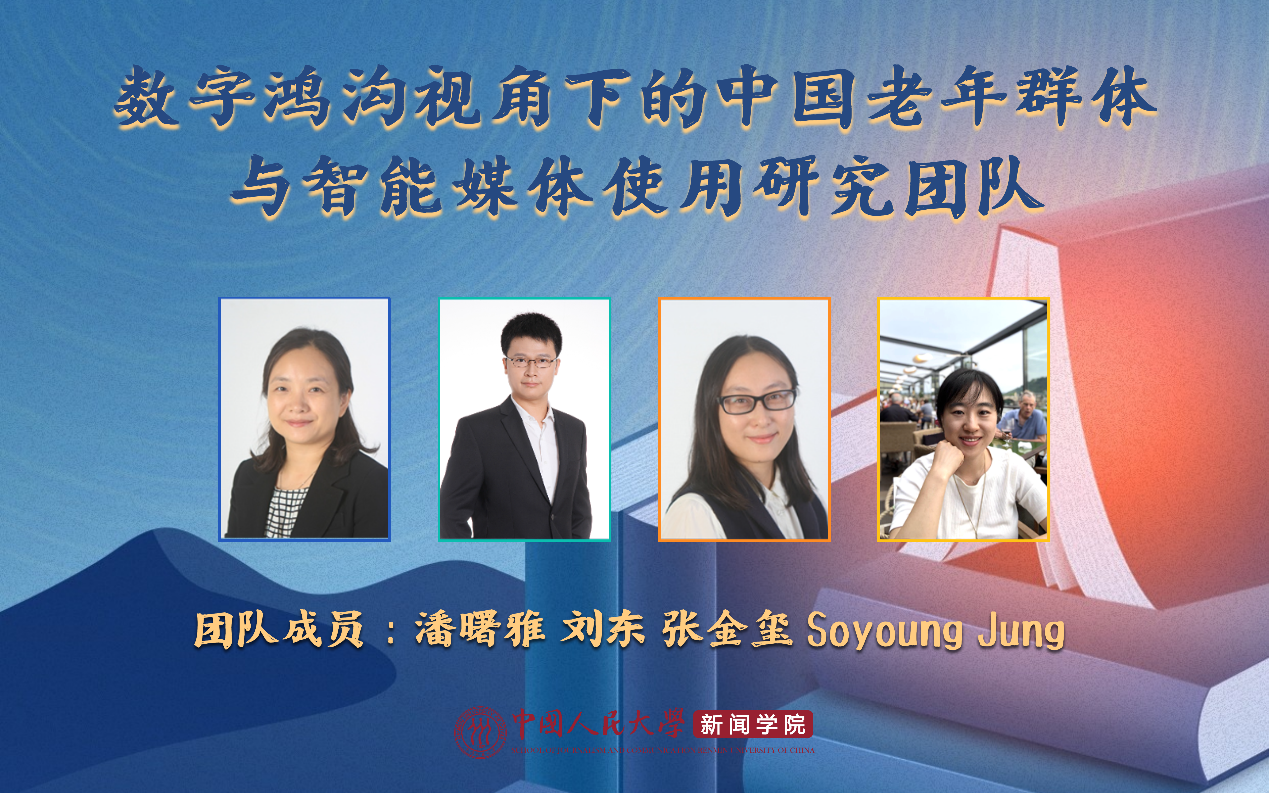
Professor Chen Changfeng believed that this research was of practical value in solving problems for the underprivileged. Professor Chen further offered several suggestions concerning the research topic and key content of this project.
Professor Sui Yan recognized the realistic significanceof this research topic. He suggested Pan and the team further clarifying the subjectand offered advice in view of two directions of focus.
“The Innovation Team of International Communication and National Communication Strategy in Digital Age” is composed of Li Qin, Ta Na, Javier García, Soyoung Jung, and Liu Ruhao, with Li Qin as the chief expert. Positioned and characterized by "smart technology + global communication", the team aimed to investigate the relationship between technology and national communication strategies, according to Li Qin. The project contained three sub-topics, including the technical basis and global impact of international communication in the digital age, changes in the news production practicesand global information flow in the digital age, and the study of global issue ownership in the international communication field. The researches covered various aspects at the technical, practical and theoretical levels. Li Qin stated the expected outcomes of the project and the difficulties it may face.
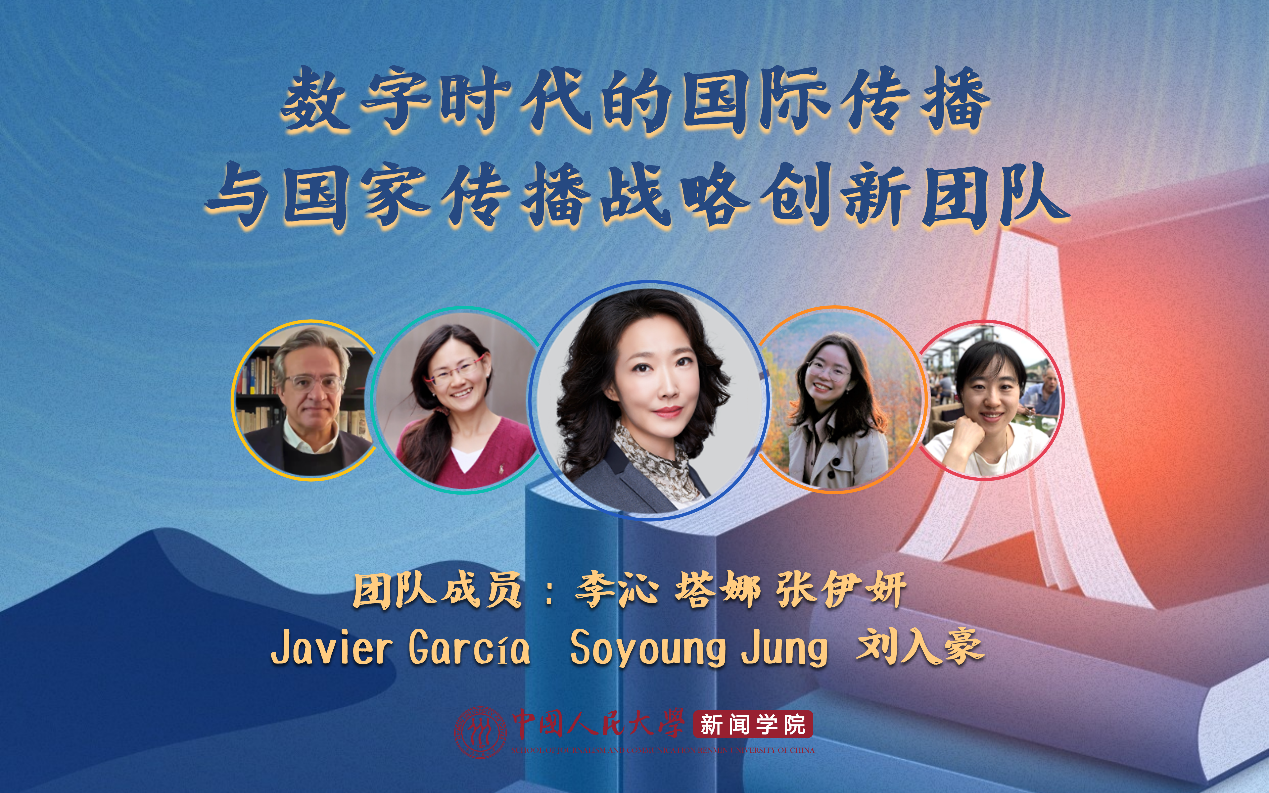
Affirming the value of the topic selectionand research design of Li Qin's team, professor ChenChangfengconsidered that the research approach, which was conducted from the technical, practical and theoretical levels was logical and well thought out. Further, it fully reflected the sense of cooperation and research strength. Professor Chen showed high expectations for theresearch outcomes.
Professor Sui Yan highly appreciated the value of the research topic selected by Li Qin's team. She believed that in the new situation of international relations, the study of international communication and national communication strategies has gone beyond the scope of journalism and communication discipline, where more interdisciplinary knowledge and theories are required to be introduced.
The “AI Advertising Theory System Innovation Team” consists of Wang Fei, Zhao Xiaoman, Zhou Qilin, Miao Chunxia, Li Qi and Wen Ya, with Wang Fei being the chief expert. Taking AI advertising as the research object, the project aimed to explore the theoretical and practical system of artificial intelligence advertising formed by the ecological evolution of the advertising industry under the technological and economic paradigm of artificial intelligence, said Wang Fei. The team planned to carry out researches in a number of areas, including the ecological evolution of the advertising industry, the system level — business models, the application level — service models, the experience level — marketing and communication models, and policy regulation. According to Wang Fei, the project is endowed with interdisciplinary perspectives.Applying theories from other disciplines such as digital economy theory and evolutionary economics theory, the project brought about innovations in research scope, structure and vision.
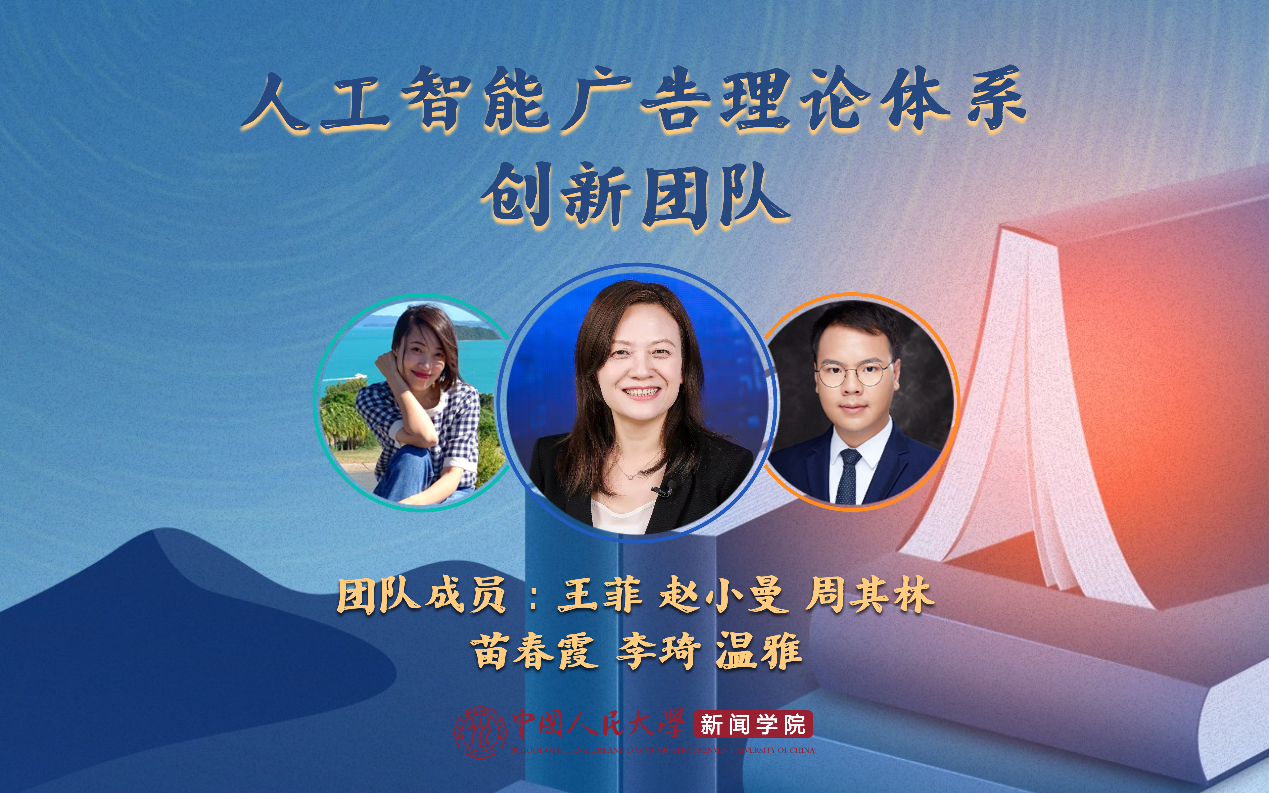
According to Professor Chen Gang, current academic researches on artificial intelligence advertising areinadequate in terms of quantity. Besides, they lack theoretical summary and generalization. Professor Chen Gang expressed his expectation for the innovative research and theoretical outcomes of Wang Fei's team and suggested that the definition of "artificial intelligence advertising" should be further clarified through dialogue with various relevant definitions.
Professor Zhou Baohua affirmed the combination and embedding design of theory and practice, teaching and talent training of Wang Fei's team. In addition, hecarried out a discussion on issues such as “how to define artificial intelligence advertising” and “how to construct advertising theory from the perspective of journalism and communication discipline”.
The “Innovation Team of Constructing Creativity Communication Teaching Material System” consists of Wang Shuliang, Lin Shengdong, Zhao Xiaoman, An Yaoshun, Ge Yong and Guo Chunning, with Wang Shuliang as the chief expert. According to Wang Shuliang, the project is founded on the "creativity communication experimental class", a talent training program jointly run by the School of Journalism and the School of Art of RUC, and the actual requirements from advertising courses. The project plans to integrate the creativity communication teaching materials system from the four dimensions of creativity, design, communication, and technology by introducing world-class teaching materials, self-editing professional course materials and creativity communication case library, which would provide a good foundation for cultivating interdisciplinary and cross-media compound creative communication talents in a digital environment.
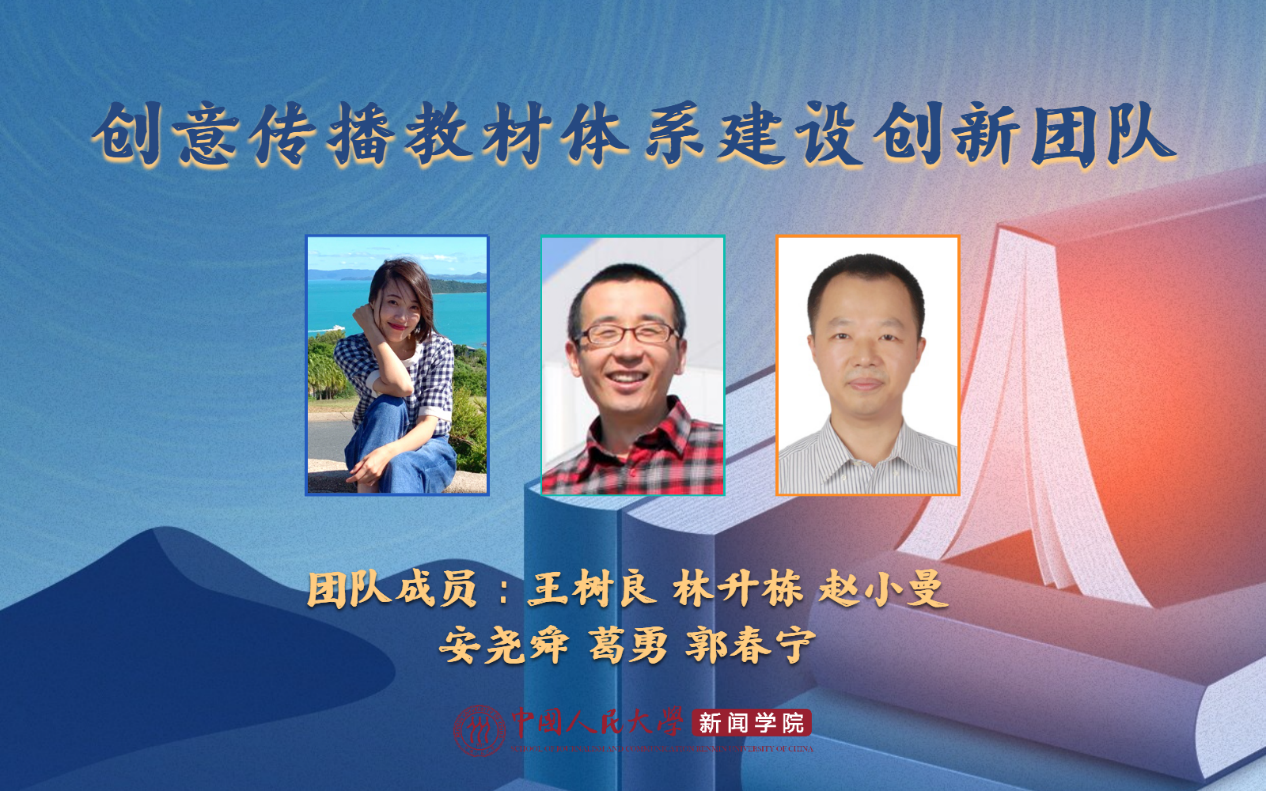
According to professor Chen Gang, who affirmed the research value of Wang the topic selection of Wang Shuliang's team, believed that the teaching material system plays a key role in talent training, and suggested that the team should pay more attention to the dynamic changes and frontier developments of the industry based on exploration, reflection, conclusion and innovation in teaching practice.
Professor Zhou Baohua confirmed the research programmeof Wang Shuliang's team with the teaching material system as the majoroutcomes. Further, he discussed the basic concept and meaning of "creativity" and whether to break the original concept and basic logic in the current era.
The “Innovation Team of Media Technology History Research Oriented to Digital Humanities” is composed of Yang Qiguang, Wang Runze, Deng Shaogen, Zhao Yunze and Li Xingbo, with Yang Qiguang as the chief expert. Guided by the concept of digital humanities, technology has been endowed withdouble meanings, said Yang Qiguang. Taking technology as a cut-in point, the team tried to discover the humanistic meaning behind technology in the history of journalism and communication.In terms of methodology, the team intends to start with the excavation and collation of historical material related to technology. In addition, the team also plans to utilisedigital humanities approaches to explore in-depth the thematic significance and emotional value behind the relevant historical materials.In terms of theory, the team hopes to explore the logic of technology in news production from the dimension of the spatio-temporal field, combined with the processes of news gathering, production and distribution throughout history.
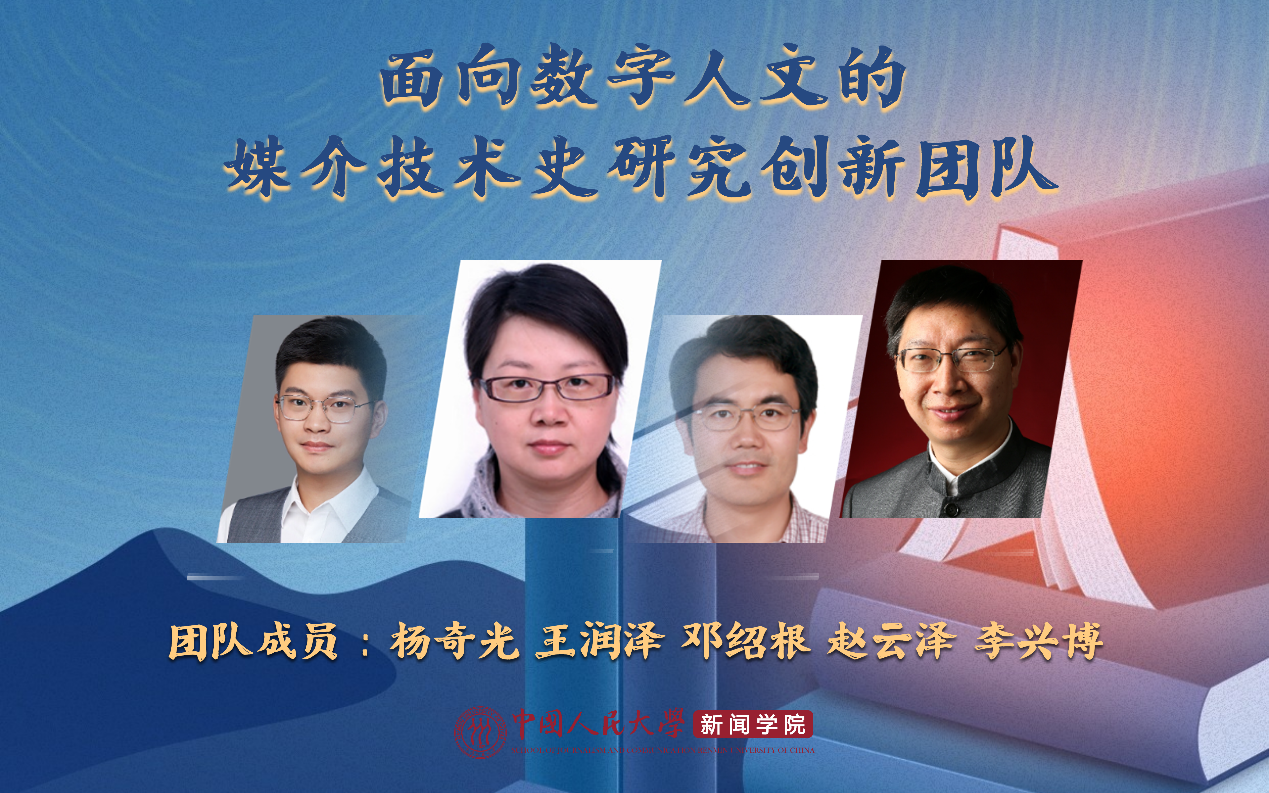
Professor Chao Naipeng considered that Yang Qiguang's team was highly innovative in placing digital humanities research in the perspective of media technology history. Along with expressing expectation, he suggested that the team give further thought about how to digitally preserve and present historical materials.
Professor Chen Gang affirmed the importance of Yang Qiguang's team's research topic in terms of disciplinary innovation and suggested them learning from the exploratory experiencesof other disciplines, such as archaeology and cultural studies in visualizing and data-presenting historical materials.
"Marxist Concept of News And Chinese Journalism — the Oral History Team of Media Development Since Reform and Opening Up" consists of Tang Zheng, Yan Yan and Xu Ying, where Tang Zheng serves as the chief expert. Since the Reform and Opening Up, the development of Chinese media has embraced a period of historical opportunity with the emergence of a large number of outstanding media and media professionals. In the Internet era, many representative online media such as portals, social platforms have come the fore. Applying methods such as oral histories, fieldwork and interviews, the team hopes to conduct in-depth dialogues with some of the leading figures of representative media in order to preserve, collate and study these media memories and provide references for future media integration and new media development.
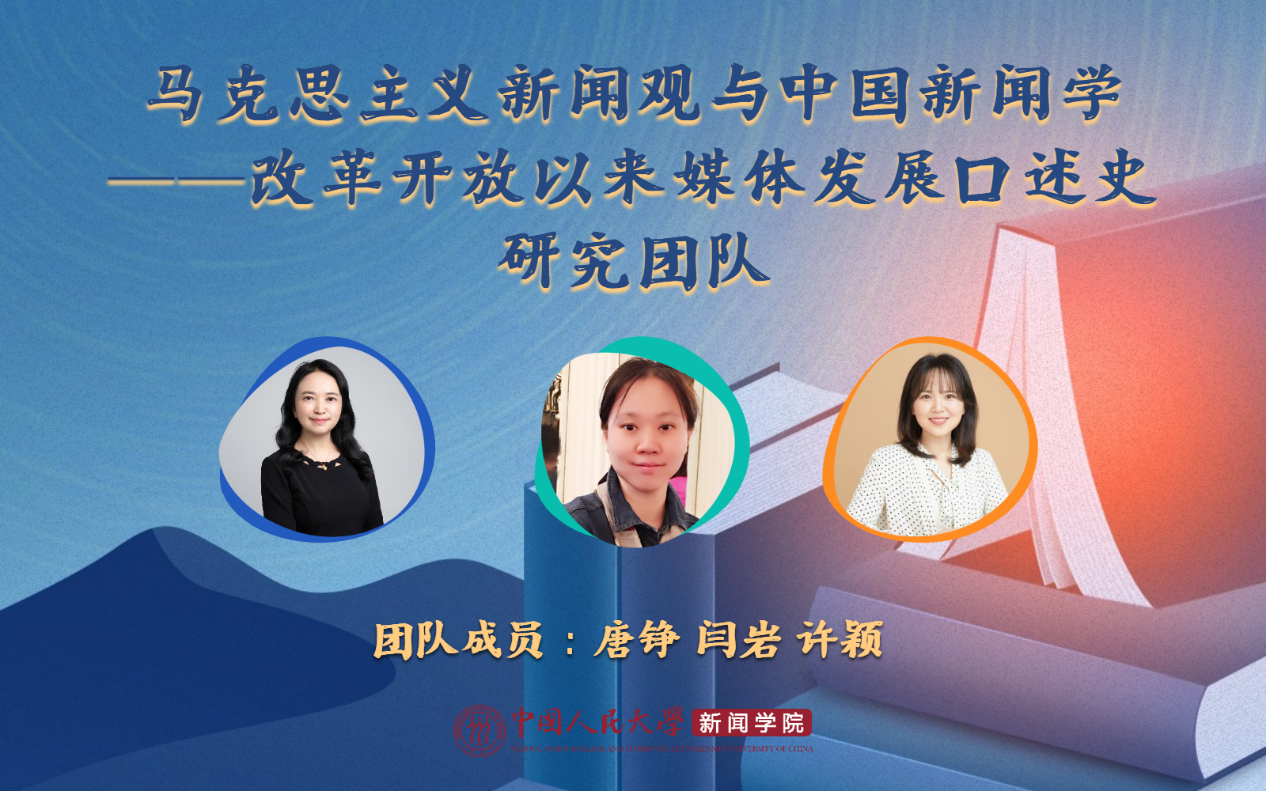
Professor Chao Naipengconfirmed the significance of the research project of Tang Zheng’s team. Additionally, he suggested that Tang Zheng’s team should deepen their thinking on the key points of oral history research design and distil socio-cultural memories from oral stories to achieve the altitude and purpose of "using history as a guide".
Professor Chen Gang advised Tang Zheng's team to clarify the relationship among the Marxist concept of news, the Chinese journalism discipline and the history of media development during the Reform and Opening Up and to further refine and improve the research programme.
After the team presentations and expert evaluations, Zhou Yong, Deputy Dean of the School of Journalism and Communication, Renmin University of China, and Zhang Huifeng, Secretary of the Party Committee, expressed their appreciations to all the teachers and experts who participated in the declaration. As Zhou Yong remarked, this review meeting was of great significance and influence, representing one of the department’s significant plans and initiatives to improve the research level and capacity in recent years. It is hoped that all teams could learn from the suggestions from experts at this review meeting, strive for research effort and conduct well-organized research to contribute to the construction of independent knowledge system for the discipline of journalism and communication with Chinese characteristics.
Author: Wen Yingying, Yang Hao, Wang Caishan
Photo by: Wen Yingying
Tutor: Wang Runze, Sun Quan
Translator:Song Ruojin, Deng Mengqi, Wu Yue
Editor: Wen Yingying, Wu Qiling,Liu Mingzhu, Mi Wenqing,Yang Guang



